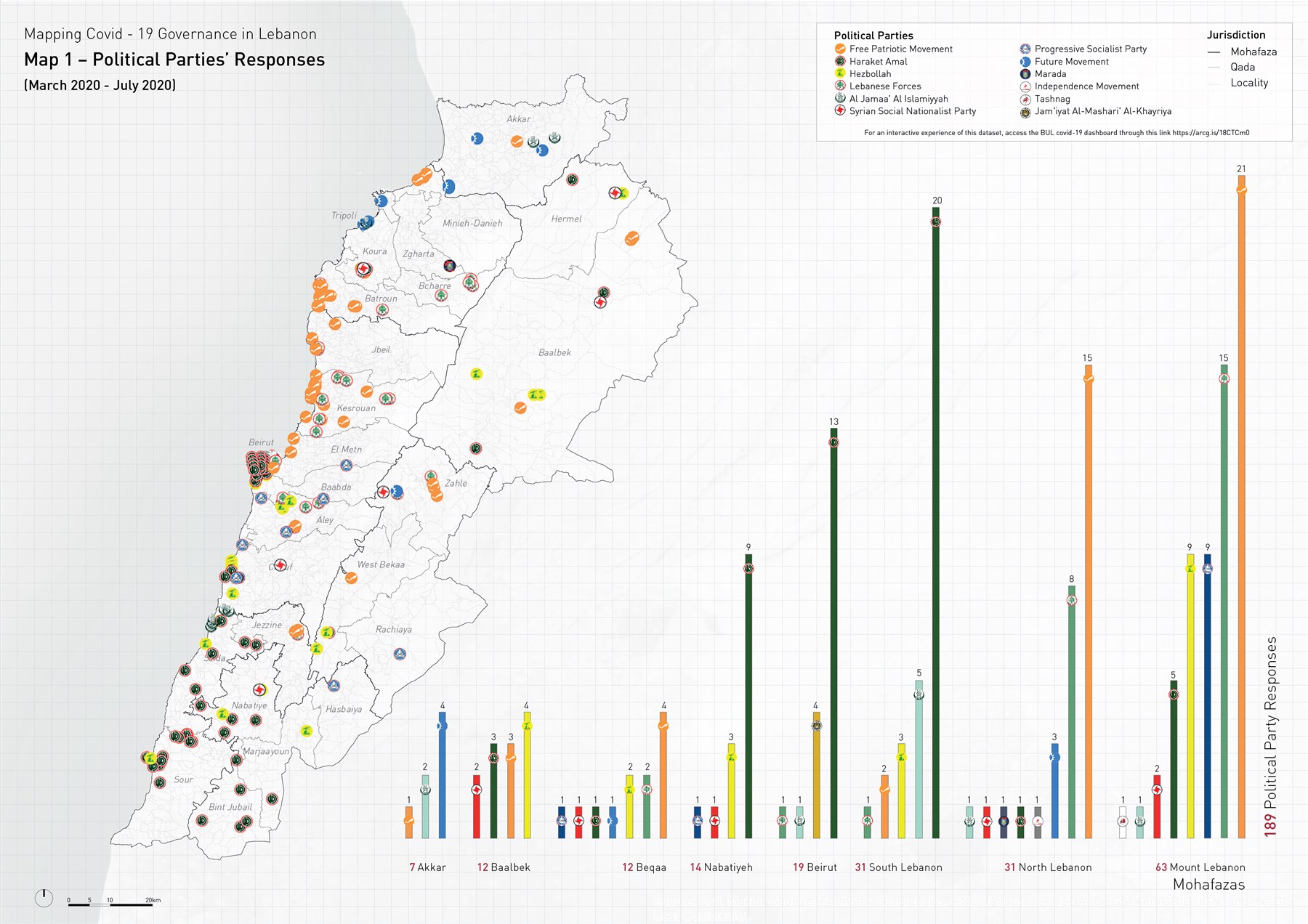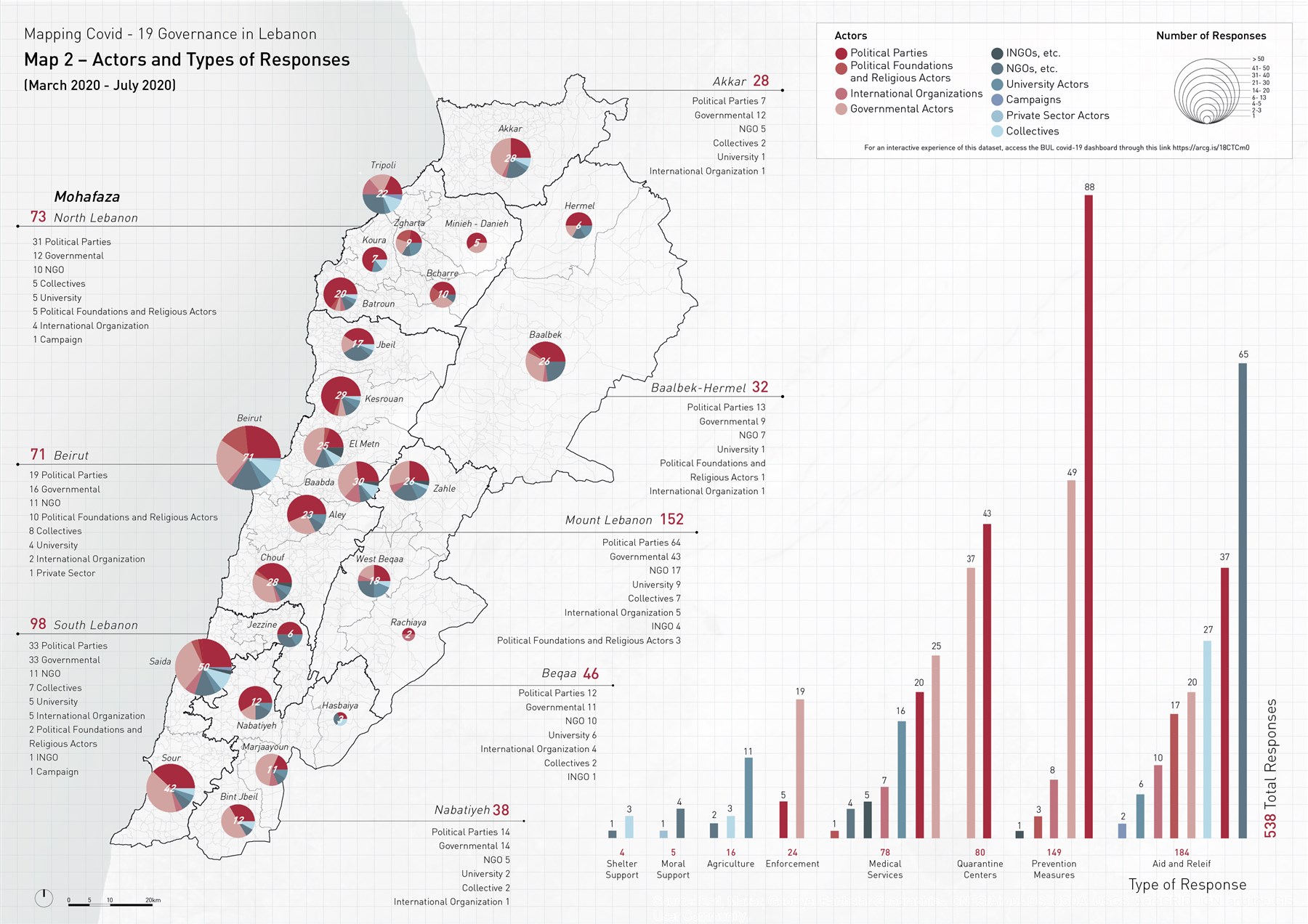Mapping Covid-19 Governance in Lebanon: Territories of Sectarianism and Solidarity
In this paper, published with the Middle East Law and Governance Journal, Luna Dayekh, Mona Fawaz, Ahmad Gharbieh and Mona Harb argue "that the governance of the pandemic in Lebanon reveals tensions between powerful political parties, weakened public agencies, as well as multiple solidarity groups with diverging aspirations, colliding over the imagined future of the country."
Abstract:
Many states, including Lebanon, have used the Covid-19 pandemic as an occasion to reassert their power and to consolidate their policing and repressive apparatuses. We are far from a seamless scenario, however. Rather than a mere reproduction of the sectarian political system, we argue in this paper that the governance of the pandemic in Lebanon reveals tensions between powerful political parties, weakened public agencies, as well as multiple solidarity groups with diverging aspirations, colliding over the imagined future of the country. Using various sources of information (broadcast, print and online news media, social media), we build a database of the types of actors and the categories of actions across locations, and analyze the territorial and political variations of the governance of the pandemic. The paper demonstrates that the Covid-19 response in Lebanon operates through ongoing negotiations over the national territory in which timid yet visible aspirations for a non-sectarian country confront sectarian territorialities through back-and-forth cycles.
The paper is available here.


